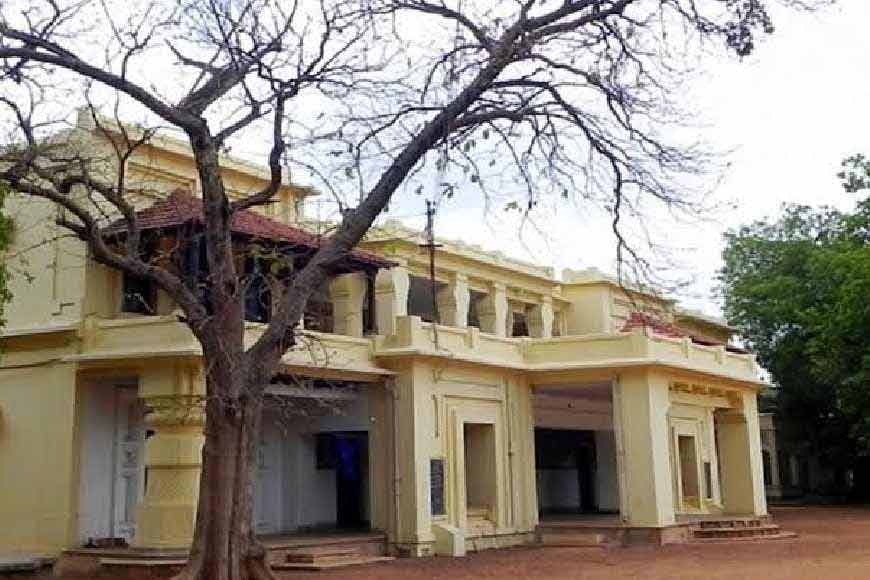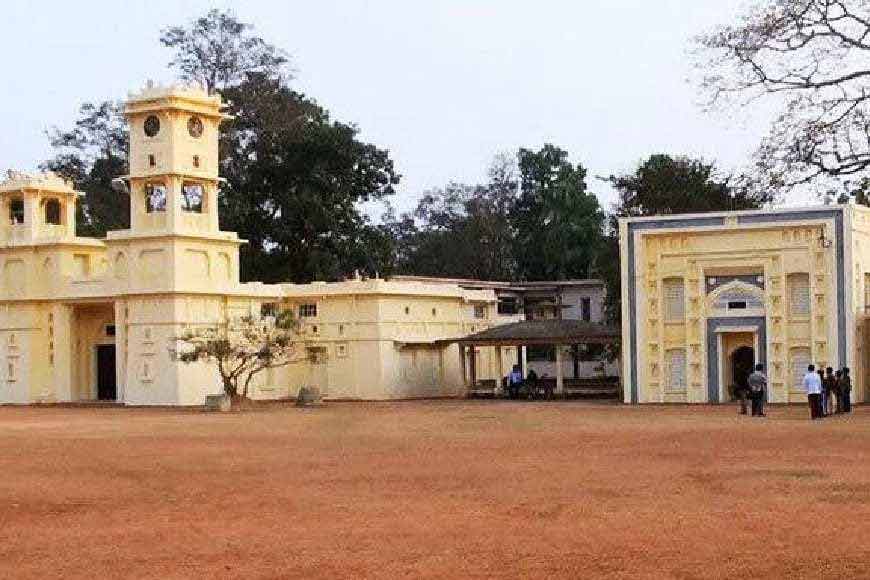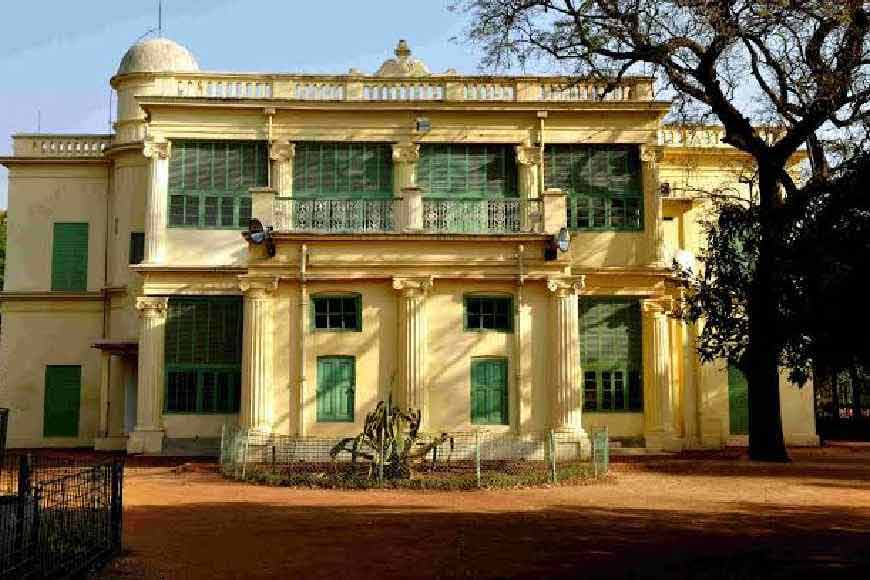Visva Bharati all set to be world’s first Heritage varsity

During Gandhiji's last visit to Santiniketan in 1940, a year before Rabindranath’s death, the two discussed the future of Visva Bharati. On the day of Gandhiji's departure (February 19), the poet requested in a letter that, in his absence, Gandhiji should focus on Visva Bharati; Gandhiji, in his reply, assured the poet of full support. He showed the poet's letter to Maulana Abul Kalam Azad and later reminded him again when Maulana Azad was the education minister in independent India. Finally, in 1951, Visva Bharati was accorded the status of India's first central university due to the concentrated and sincere efforts of the poet’s son, Rathindranath Thakur, for recognition. The country’s first Prime Minister, Pandit Jawaharlal Nehru, became the Chancellor (Acharya) of the university, and Rathindranath joined as Vice Chancellor. With the Prime Minister of India being the Chancellor, it became much more convenient to procure funds for the varsity and resolve financial problems.
On October 11, 1916, Rabindranath wrote to his son, Rathindranath, from Los Angeles, expressing his vision for the school he had set up at Santiniketan. He wrote that the school (at Santiniketan) should be nurtured and developed as the source of India's connection with the rest of the world; it has to be developed as a centre for the practise of universal humanity. The era of indigenous nationalism is going to fizzle out gradually. As the world moves forward to establish the concept of global citizenship where one’s identity will transcend the geographic or political borders and he will be a part of the broader class: "humanity", Rabindranath envisioned Bolpur to initiate the process by hosting the first grand global reunion. He was determined to work and make the place rise above fragmented geography, from which the first banner of victory for mankind would be raised.
Visva Bharati was established with the aim of integrating education with world humanity. He expressed his thoughts as, "Poshchime aaj khuliyachhe dwar/ Setha hotay shobe aane upohar/ Dibe aar nibe/ Milaabe milibe/ Jaabe na phire/ Ei Bharoter moha manober sagor teeray" (The West has opened the door, / From where now comes the gift in this shore, / Only to give and to take, / To mix and to match, / And will not return any more, / Around this shore of India's great men)

Now that Visva Bharati, the institution that is synonymous with Rabindranath and his ideals, is going to be conferred with the UNESCO heritage honour, the hot topic doing the rounds at the moment is, will the university be able to rise up to the global stature, especially as the institution is in turmoil now and anarchy and despotism reign? Eminent academician Pabitra Sarkar sounds concerned when he says, "This recognition, and benevolence are a part of showing appreciation, but the recognition will have no real impact if the quality of education and research in Visva Bharati does not improve.''
Visva Bharati will be the world’s first heritage university. The groundwork for this project is already done, and now the wait is on fixing a date to convene a formal meeting to further the bureaucratic process. The meeting is likely to be held in April or May. Usually, a heritage tag is conferred on historical monuments, but for the first time in the world, an operational university is going to get heritage recognition from UNESCO. Visva Bharati was established in 1921 on 1130 acres of land. It remained in the name of Nobel Laureate Rabindranath Tagore until the Visva Bharati Society was registered as an organization in May 1922. Rabindranath donated several of his properties, including land and a bungalow, to the society at that time. It was a college until Independence, and in 1951, the institution was given the status of Central University. The second vice-chancellor of this esteemed institution after Rathindranath Tagore was Dr Kshitimohan Sen, grandfather of Nobel laureate economist, Dr Amartya Sen.
This premiere institution once attracted students from all corners of the world and it can boast of an illustrious alumni including Nobel laureate economist, Dr Amartya Sen, Oscar-winning filmmaker/author/illustrator/musician, Satyajit Ray, former princess of Cooch Behar and later Queen (Rajmata) Gayatri Devi of Jaipur, former Prime Minister of India, Indira Gandhi, and many others from different disciplines. Sahana Bajpayee, a former pupil and well-known singer and academician, sounds anxious when she says, "The recognition definitely adds a feather in the hat of the hallowed institution and is a matter of great joy and pride for those of us who studied there. But is Rabindranath Tagore's legacy being befittingly carried by Visva Bharati, especially at the present time? This is an important question for many of us. It is a moral responsibility to find the answer to that question. It is not enough to have the stamp of UNESCO just for some hype or to enhance a global image. To be truly universal, the institution must strive to attain universal status through outstanding performance."
Not only a veteran of Visva Bharati has expressed this concern, but a few days ago, Visva Bharati University (VBU) Vice-Chancellor Bidyut Chakraborty courted a controversy after a video clip purportedly showed him as saying that the dream institution of Rabindranath Tagore had lost its global identity and become 'Bolpur Bharati' or 'Paschimbanga Bharati.' Even without verifying the authenticity of this video, it is evident that Visva Bharati has lost its dignity. According to heresy, people often say that those students who have a bleak, come to Visva Bharati to study. It is surprising that youngsters who are keen to get admission in Jadavpur University, Calcutta University, or Presidency University for higher studies are not interested in applying for admission to Visva Bharati. Why is that so?

Not only has the quality of education deteriorated in the university, but recently expensive equipment has been pilfered from the lab as well. If theft of Tagore’s Nobel medal is deplorable, the present situation at Visva Bharati is no less disgraceful. If such embarrassing incidents continue to occur, eminent alumni of this university will hide their faces in shame. There has been a string of resignations at Visva-Bharati University campus in the backdrop of relentless agitation by a section of students on campus. Prolonged sit-ins, complaints of vandalism, demands for the resignation of the vice chancellor, and disruption of university activities have lowered the prestige of this heritage institution. Why has the university campus turned into a war zone between students and the authorities? What does the VC have to say about this anarchy?
The sit-in protests by agitators have been going on in front of the vice chancellor’s residence. But why is this demonstration being held? A leader of the sit-in movement said, "We have several demands, including the timely publication of results, scholarships, the filling up of empty seats in hostels, and stopping the anarchy that is ruining Visva Bharati. But what do we see here? The voices of dissent against the VC are being selectively identified – be they teachers or staff or students; everyone is being harassed. As long as I was not associated with the movement, I had no problem. I have been served show cause notice, then sent a letter through the head of the department, threatening to involve the CBI to probe my antecedents, and later, when I applied for pre-submission of my research paper, it was deliberately delayed by citing silly reasons like too many spelling errors in the dissertation paper."
Trouble erupted at Visva-Bharati in 2020 when the university authorities decided to build a fence around the ground, where the ‘Poush Mela’ (winter fair) is held every year. The fair was also cancelled over environmental concerns. After the order of the Environment Court, construction work started under the supervision of Vice-Chancellor Bidyut Chakraborty,. What followed was utter anarchy and mayhem, never before witnessed at Santiniketan. A large number of irate mobs demolished the gates of the campus and ransacked construction material brought to build the wall around the ground. The temporary camp office was demolished. Even, external attackers brought JCB machines and vandalised the property of the university. The vandalism following the construction of the fencing wall, students’ agitation, and losing the glorious faculty – all these incidents have tarnished the image of the Central University. How much of it will be revived by the UNESCO Medal is a big question that is being raised by various segments of society.










